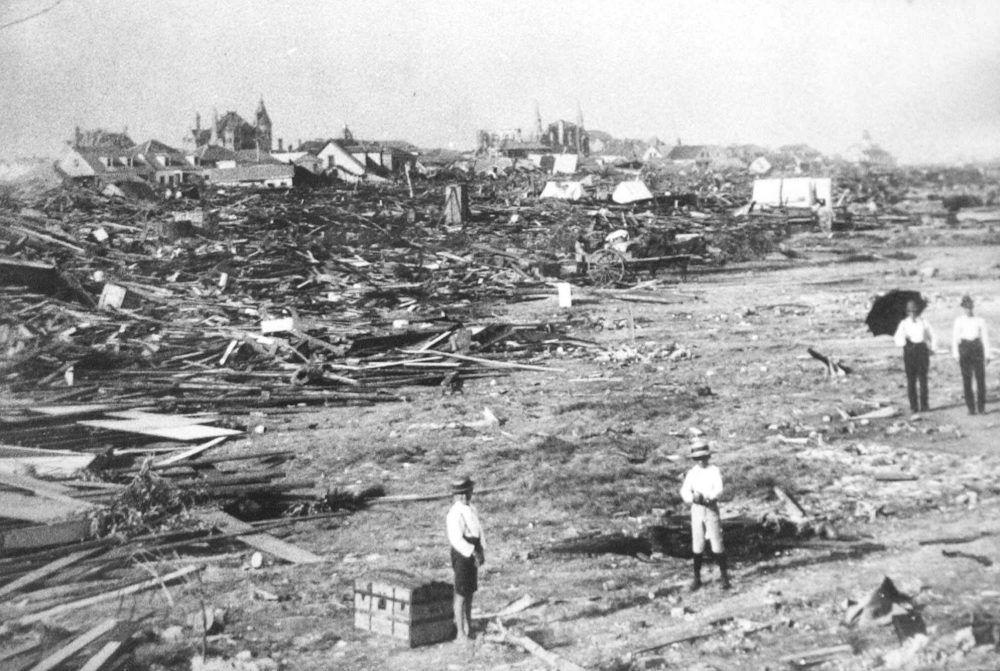Advertisement
Lessons Learned From America's Earliest Natural Disasters
Resume
The phrases "unprecedented" and "beyond anything experienced" have become commonplace since Hurricane Harvey wreaked havoc along the Gulf Coast. But natural disaster is not new in America.
From Philadelphia's deadly yellow fever outbreak in 1793 to the Galveston hurricane of 1900, the country's earliest disasters have taught valuable lessons for preventing loss of life in the modern era. Historians Ed Ayers (@edward_l_ayers) and Joanne Freeman (@jbf1755) speak with Here & Now's Jeremy Hobson about those tragic events and how federal and local governments adapted for the future.
Ayers and Freeman are co-hosts of the podcast BackStory, which is produced at the Virginia Foundation for the Humanities.
This segment aired on August 31, 2017.